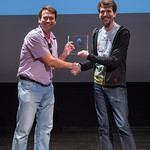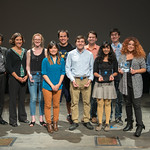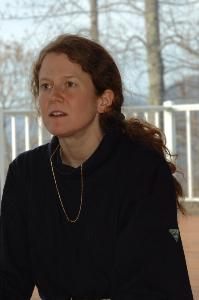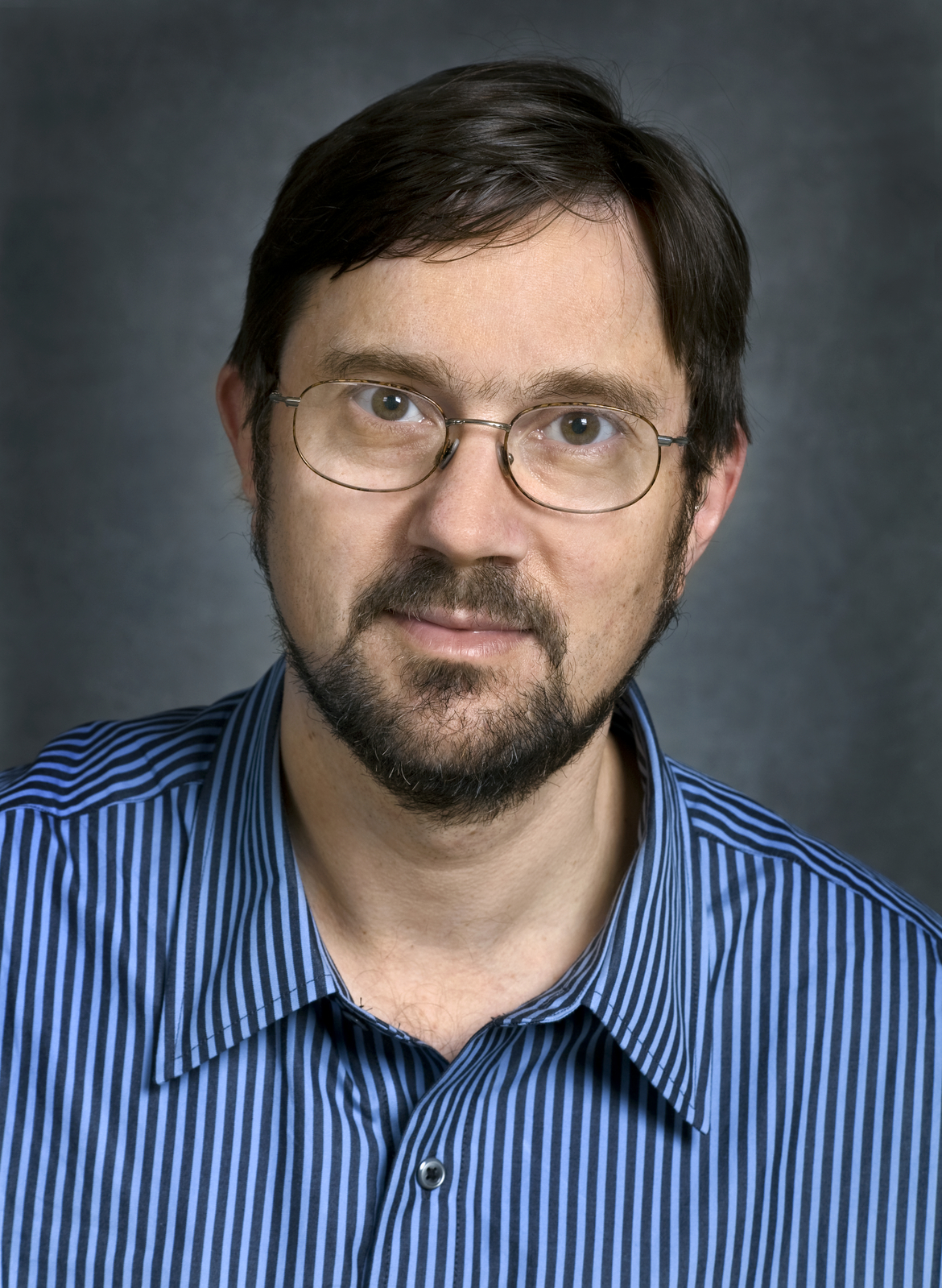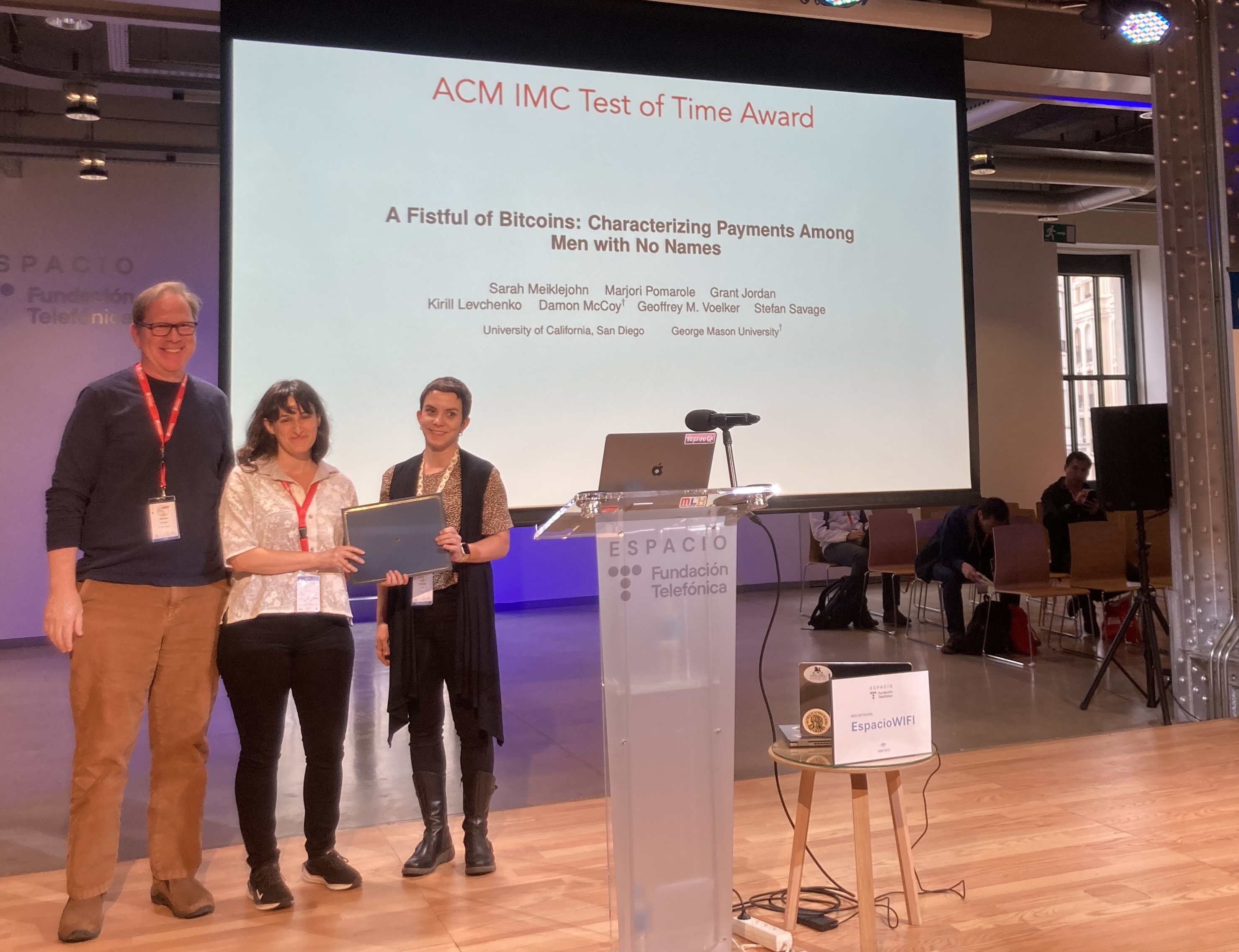
|
November 4— CSE alumni Sarah Meiklejohn, Marjori Pomarole, Grant Jordan, Kirilll Levchenko and Damon McCoy, along with Geoff Voelker and Stefan Savage received the ACM IMC Test of Time award today for their 2013 paper A Fistful of Bitcoins: Characterizing Payments Among Men with No Names which is credited with helping to establish the technique of cryptocurrency tracing (the core part of this story is told in Andy Greenberg's book, "Tracers in the Dark", as well as a summary article he wrote in Wired this year). Congrats to Sarah and all her collaborators! |
| October 17— Another press burst for Earlence Fernandes and collaborators, this time for work showing how malicious prompts can be used to exfiltrate user information. Read the Wired story or visit the paper website to learn more. |
| August 14— Wide coverage this week of MakeShift, the WOOT paper by Earlence Fernandes and his co-authors that demonstrates remote wireless takeover of Shimano bicycle shifters. This includes a feature by Andy Greenberg at Wired and an TV interview of Earlence at KBPS. Congrats Earlence! |
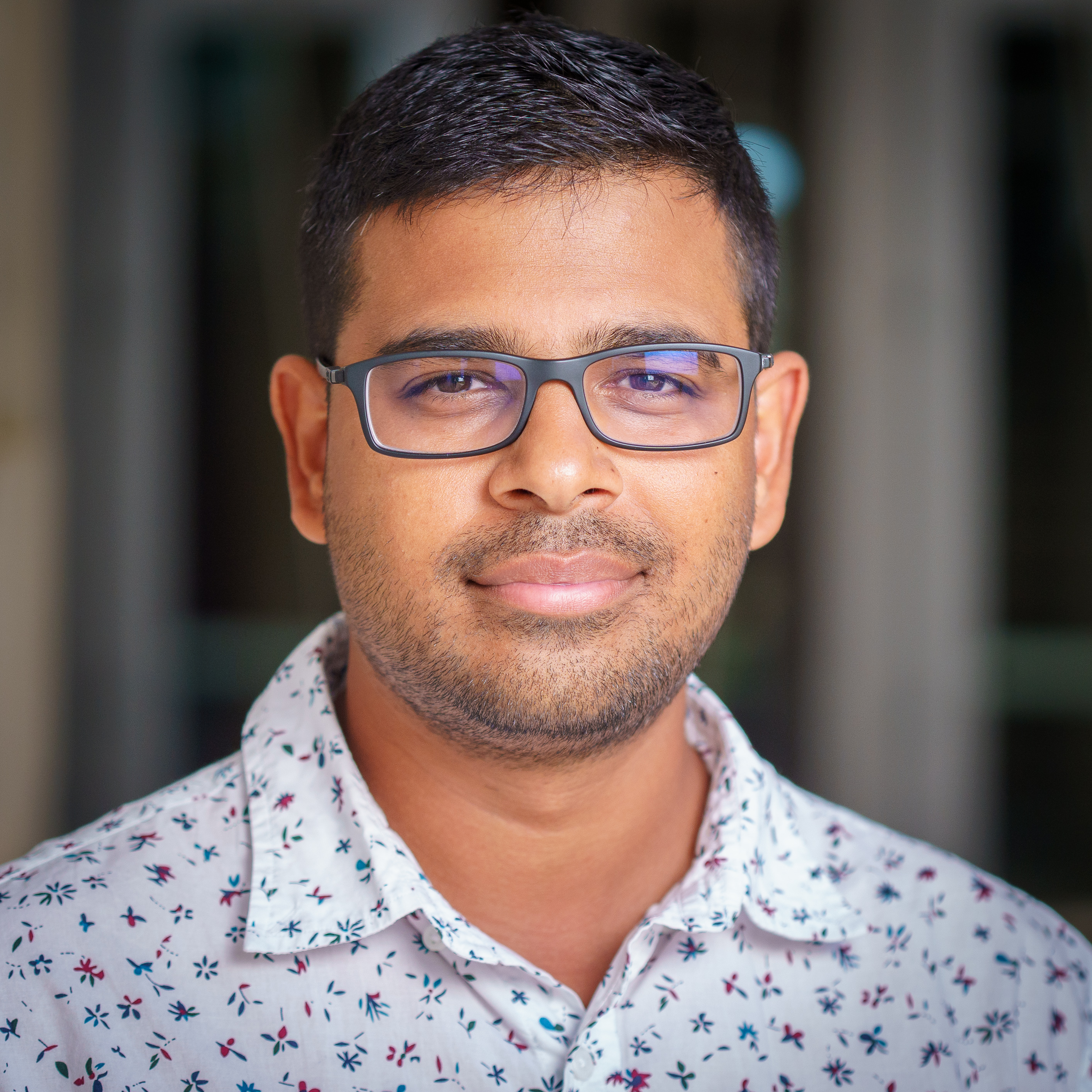
|

|
August 6— Another congrats is in order for Nadia Heninger and faculty alumn Hovav Shacham whose 2009 CRYPTO paper "Reconstructing RSA Private Keys from Random Key Bits" has won this year's IACR Test-of-Time award. This is the paper that showed how to recover RSA private keys using a modest random subset of its bits. |
| July 9— Congrats to Nadia Heninger, students Miro Haller and Adam Suhl and their collaborators for their discovery of the Blast-RADIUS vulnerability in the RADIUS authentication, authorization and accounting (AAA) protocol. The associated paper will appear at USENIX Security and involves a chosen-prefix MD5 attack allowing attackers to synthesize Access-Accept messages without any knowledge of the underlying secret key. RADIUS is widely deployed in network equipment in ISPs, enterprises and in a variety of industrial settings and there has been significant work behind the scenes to provide fixed and/or mitigated updates to many thousands of systems before this work was made public. An amazing bit of work all around! |

|

|
January 31— Congrats to Stefan Savage, Taylor Berg-Kirkpatrick (and Geoff Voelker, the application form only allowed two names) and their students for receiving one of the first Google "Trust and Safety" Research Awards for their work focused on using Large Language Models in scam honeypots. And we hear they wrote the proposal without any help from AI! |

|



















































